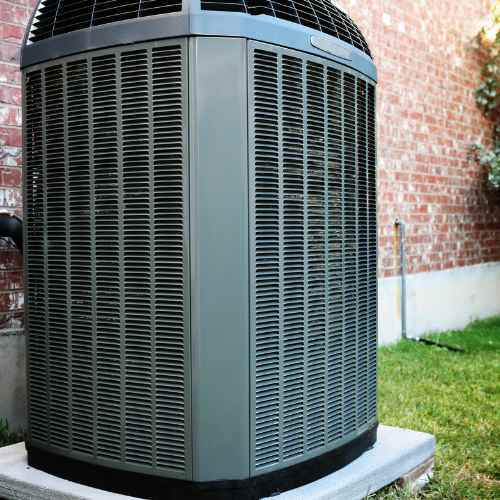Setting your thermostat to 72 degrees should provide a consistent, comfortable indoor environment. However, many homeowners find their home’s temperature varies throughout the day. If you’ve experienced this, you’re not alone. Several factors can influence how your home feels, even when your thermostat is set to a specific temperature.
This blog post will explore these factors and highlight the importance of variable speed and multi-stage fans in indoor and outdoor HVAC units. We’ll also discuss the impact of oversized units on humidity control.
Humidity: The Hidden Culprit
Humidity plays a significant role in how warm or cool your home feels. When humidity levels are high, the air feels warmer because moisture makes it harder for sweat to evaporate from your skin. This can make a comfortable 72 degrees feel much hotter. On the other hand, low humidity levels can make the air feel cooler.
Maintaining optimal humidity levels is essential for consistent comfort.

The Importance of Variable Speed and Multi-Stage Fans
Modern HVAC systems with variable speed and multi-stage fans offer superior control over temperature and humidity. Here’s why they’re important:
1. Consistent Temperature Control:
- Variable-speed fans can adjust their speed to match the cooling demand. This means they run at lower speeds for longer periods, providing more precise temperature control. Instead of constantly turning on and off, the system maintains a steady temperature, making your home feel more consistently comfortable.
2. Better Humidity Management:
- Multi-stage fans can operate at different levels, allowing the system to run longer at lower speeds. This extended operation time is crucial for effective humidity control. By removing more moisture from the air, these systems prevent that sticky, humid feeling and make your home feel cooler.
3. Enhanced Energy Efficiency:
- Variable speed and multi-stage systems are more energy-efficient than traditional single-stage systems. They avoid the frequent on-off cycles that consume more energy. By running continuously at lower speeds, they use less electricity, saving you money on energy bills and reducing your environmental impact.
The Downsides of Oversized AC and Heat Pump Units
Oversized HVAC units might seem like a quick solution to cooling your home. Still, they can create more problems than they solve, especially regarding humidity control.
1. Short Cycling:
- An oversized unit cools your home too quickly, causing it to shut off before completing a full cooling cycle. This process, known as short cycling, prevents the system from running long enough to remove sufficient humidity from the air. As a result, your home may reach 72 degrees but still feel uncomfortably humid.
2. Increased Wear and Tear:
- Frequent short cycling strains the HVAC components, increasing wear and tear. This can result in more frequent repairs and a shorter lifespan for your system.
3. Higher Energy Consumption:
- Constantly turning on and off, oversized units consume more energy, leading to higher electricity bills and unnecessary environmental impact.

Tips for Achieving Optimal Comfort
To ensure your home feels comfortable and maintains a consistent temperature when your thermostat is set to 72 degrees, consider the following tips:
- Invest in a Variable Speed or Multi-Stage System: Upgrade to an HVAC system with variable speed or multi-stage fans. This investment will enhance comfort, efficiency, and humidity control.
- Proper Sizing: Ensure your HVAC system is correctly sized for your home. A professional HVAC technician can perform a load calculation to determine the appropriate size for optimal performance.
- Regular Maintenance: Keep your HVAC system well-maintained with regular inspections and servicing. Clean filters, calibrated thermostats, and properly functioning components are essential for consistent comfort.
- Humidity Control: Use a dehumidifier if necessary, especially during humid months. Maintaining ideal humidity levels in your home enhances overall comfort and prevents that sticky feeling.
Understanding why your home’s temperature might still vary even when the thermostat is set to 72 degrees involves recognizing the impact of humidity and the importance of your HVAC system’s functionality.
Variable speed, multi-stage fans, and appropriately sized units are critical for consistent comfort and effective humidity control.
Addressing these factors ensures your home remains comfortable.


